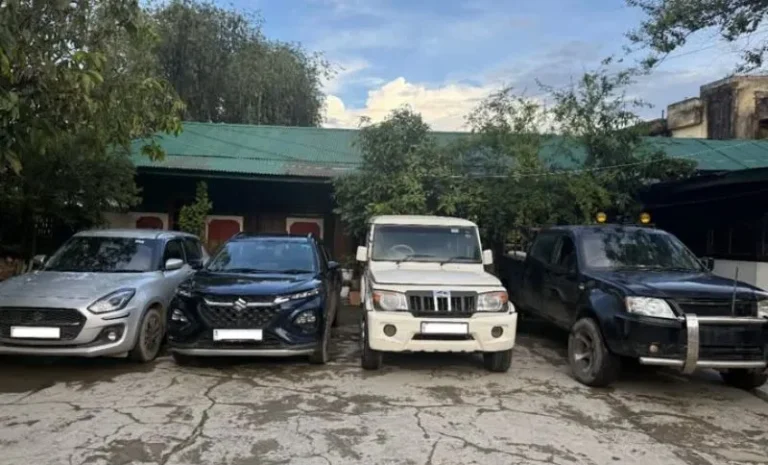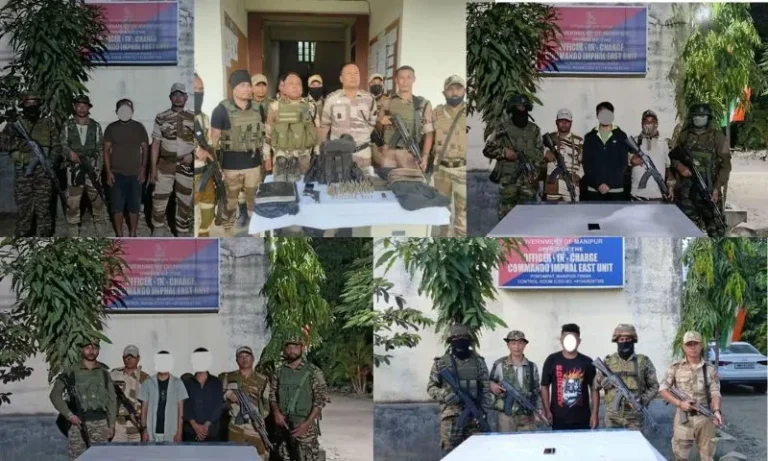Manipur CM Biren Welcomes Border Pass Regulation, Urges Vigilance Against Illegal Immigration
Summary of the News Article
In a recent development, Manipur Chief Minister N. Biren Singh applauded the Union Home Ministry’s introduction of a border pass system, allowing temporary entry for Myanmar residents living within 10 kilometers of the India-Myanmar border. This initiative, aimed at regulating cross-border movements, comes with a strong emphasis on vigilance against illegal immigration and enhancing security measures. Singh urged the Assam Rifles and other officials to leverage advanced technologies to monitor the border effectively and expressed gratitude to the central government for addressing long-standing concerns.
A Deep Dive into Manipur’s Border Pass Regulation
Introduction
Ever wondered how nations manage their borders when communities on either side share more than just geographical proximity? Manipur, a vibrant northeastern state of India, is a classic example. Sharing a porous border with Myanmar, Manipur has long grappled with the complexities of cross-border movement, blending cultural ties with security challenges.
The latest move by the Union Home Ministry introduces a regulation that allows residents from Myanmar, living close to the border, to enter Manipur with a special “border pass.” This regulation isn’t just about logistics; it’s about safeguarding security while respecting the cultural and social dynamics of the region. Let’s unravel the details and implications of this significant development.
What Does the Border Pass Regulation Mean?
Breaking Down the Regulation
At its core, the border pass regulation permits residents of Myanmar residing within 10 kilometers of the international boundary to enter Manipur for short durations. These passes, issued by the Assam Rifles, aim to document and regulate movements that were previously unchecked.
Why now? The need for such a system arises from the historical ties and familial connections that transcend the man-made borders, which often lead to undocumented movements and security concerns.
Balancing Security and Cultural Connections
Manipur and Myanmar share more than just a border. There’s a shared history, interwoven familial ties, and a mutual reliance for trade and livelihood. However, this porous border has also been a hotspot for illegal immigration, smuggling, and other illicit activities. The border pass system is a step towards fostering legitimate interactions while curbing the negatives.
Chief Minister Biren Singh’s Take on the Initiative
Welcoming the Regulation
Chief Minister N. Biren Singh didn’t mince words in his appreciation for this move. “This is a much-needed step. Earlier, there wasn’t much control over who entered or exited. With this regulation, we are starting a new chapter in border management,” Singh said.
His gratitude extended to Home Minister Amit Shah and the Union government for finally addressing a pressing issue that has long plagued the region.
The Push for Vigilance and Modern Tech
While welcoming the initiative, the Chief Minister stressed that vigilance is the need of the hour. He urged the Assam Rifles, health officials, and district authorities to adopt modern technologies—think drones, biometric systems, and surveillance cameras—to monitor border activities. After all, securing a border isn’t just about fences; it’s about smart strategies.
The Broader Context: Why This Regulation Matters
The Historical Connection
For centuries, the people living along the India-Myanmar border have shared cultural, economic, and familial ties. From shared festivals to trading goods, the border was more of a bridge than a barrier. However, with changing political landscapes, this once-seamless connection has faced disruptions.
The Security Dilemma
Manipur’s geographical proximity to Myanmar makes it vulnerable to several security challenges. Insurgent groups often exploit the porous border to move undetected. Add to this the issues of human trafficking, drug smuggling, and illegal immigration, and it becomes clear why a regulated system like the border pass is crucial.
Economic Impacts
Border communities often rely on trade and cross-border exchanges for their livelihoods. The regulation seeks to ensure that these interactions continue in a legitimate manner, fostering economic stability while keeping security concerns in check.
Challenges Ahead: What Needs to Be Addressed
Implementing a border pass system is easier said than done. Here’s what the roadblocks might look like:
- Ensuring Fair Issuance
How do you ensure that only genuine applicants receive these passes? Transparency in the process will be key. - Preventing Misuse
The potential misuse of these passes by insurgents or smugglers is a concern that needs robust countermeasures. - Community Cooperation
Local communities must be taken into confidence to make the initiative successful. Without their cooperation, even the best regulations can falter. - Technological Integration
While the idea of leveraging modern tech sounds promising, its implementation in remote and rugged terrains will require significant investment and planning.
Manipur’s Efforts Beyond Border Management
Combating Misinformation
Chief Minister Singh highlighted another pressing issue—misinformation. Social media platforms have been rife with rumors and false narratives about Manipur, leading to unnecessary panic and tensions. Singh’s administration has taken a proactive stance, cracking down on fake accounts and ensuring that the truth prevails.
Focus on Relief Camps
Singh also addressed the tragic suicide of a young woman at a relief camp, clarifying that the incident wasn’t linked to camp conditions. His response underscores the state’s commitment to transparency and the well-being of its people, even in challenging times.
The Role of Advanced Technology in Border Management
The call for advanced technology isn’t just a buzzword. It’s a necessity. Here’s how technology can change the game:
- Drones for Surveillance
Imagine drones patrolling the border, capturing real-time data and ensuring no unauthorized movements escape notice. - Biometric Systems
A foolproof way to document individuals crossing the border, minimizing the risk of forgery. - Integrated Databases
Linking border data with national security databases ensures that any red flags are immediately noticed and addressed.
FAQs
- What is the purpose of the border pass regulation?
The regulation aims to control and document cross-border movement while fostering legitimate interactions between India and Myanmar. - Who issues the border passes?
The Assam Rifles, a paramilitary force, are responsible for issuing these passes. - How will this regulation impact local communities?
It ensures that legitimate trade and familial interactions continue while addressing security concerns. - What role does technology play in this initiative?
Advanced tools like drones and biometric systems enhance monitoring and ensure efficient border management. - What measures are in place to prevent misuse of the border passes?
Transparency in the issuance process and strict monitoring by security forces are key measures.




